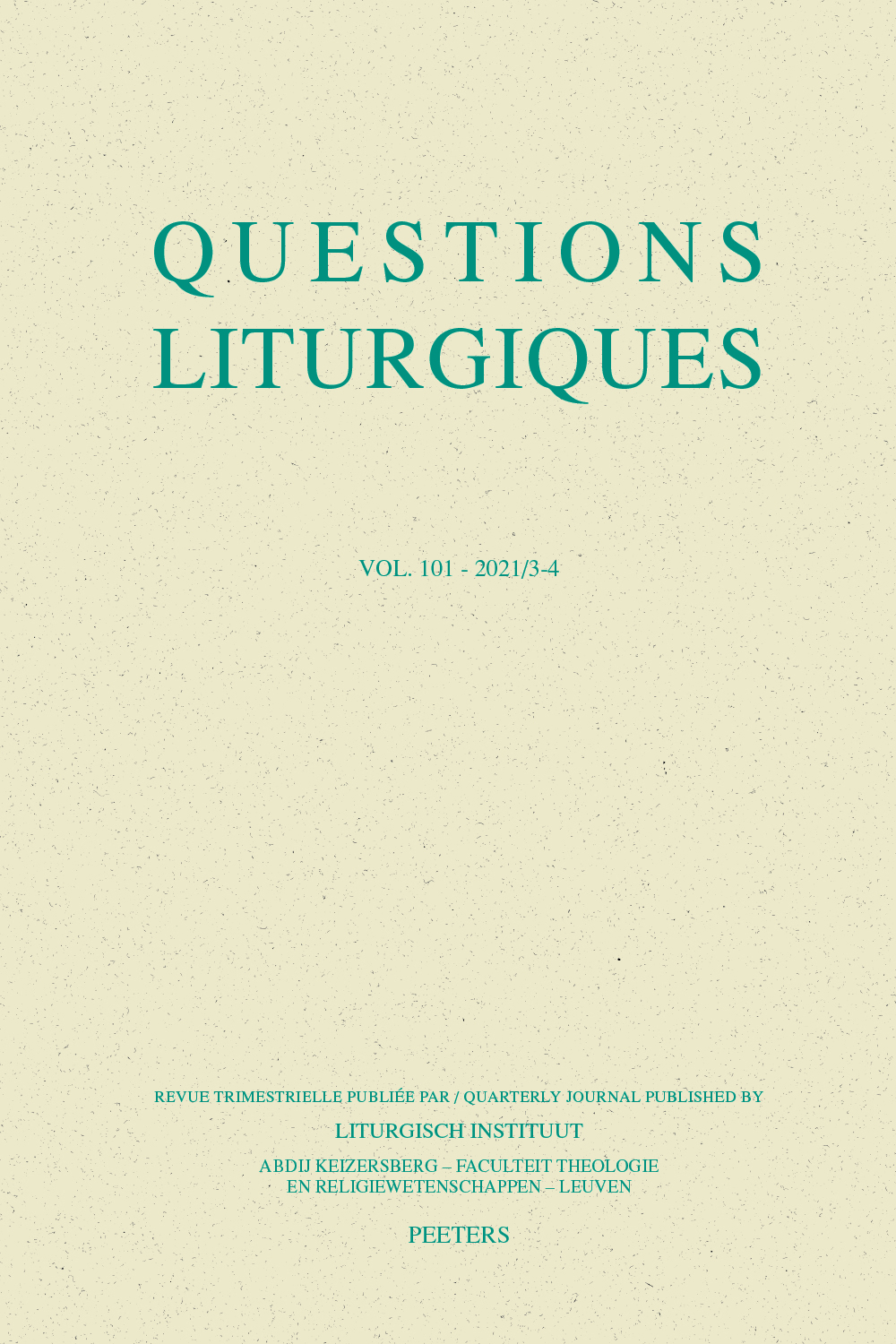 previous article in this issue previous article in this issue | next article in this issue  |

Preview first page |
Document Details : Title: L'Église de Belgique et le congrès des oeuvres catholiques de Malines (sept. 1909) Author(s): DELVILLE, Jean-Pierre Journal: Questions Liturgiques/Studies in Liturgy Volume: 91 Issue: 1-2 Date: 2010 Pages: 10-17 DOI: 10.2143/QL.91.1.2047026 Abstract : Historien du christianisme à la Faculté de théologie de Louvain-la-Neuve, J.-P. Delville décrit la situation de l’Église et de la société belge au moment où le Congrès des Œuvres catholiques de Malines va se réunir (1909). Pie X a succédé à Léon XIII; il entreprend des réformes pastorales, mais il condamne le Modernisme. En Belgique, les catholiques sont au gouvernement depuis 1884. Le pays connaît la prospérité économique. La recherche théologique est florissante à l’Université Catholique de Louvain, mais également dans divers Ordres religieux. Le nouvel archevêque de Malines, D.-J. Mercier, est un intellectuel et un pasteur. Favorable aux thèses démocrates, il est cependant soucieux de l’unité des catholiques de son pays, divisés en conservateurs et en démocrates. L’année 1909 permet enfin de tenir un nouveau Congrès des Œuvres Catholiques à Malines rassemblant Flamands et Wallons; il connaît un véritable succès et sera suivi d’avancées sociales appréciables. À la demande de Mercier, Dom L. Beauduin, moine liégeois du Mont César (Louvain), tiendra au Congrès une conférence sur la liturgie. Celle-ci inaugure la phase belge du Mouvement liturgique contemporain dont l’abbaye du Mont César sera le point focal jusqu’à la guerre de 1914-1918. J.-P. Delville is Professor of the history of Christianity at the Faculty of Theology of Louvain-La-Neuve. He describes the situation of the Church and society in Belgium at the time when the Congrès des Œuvres Catholiques met in Mechelen. When Pius X succeeded Leo XIII he carried out pastoral reforms, but condemned Modernism. In Belgium, Catholics had been participating in the government since 1884. The country was experiencing economic prosperity. Theological research was flourishing at the Catholic University of Leuven, and likewise in different religious orders. D.-J. Mercier, the new archbishop of Mechelen, was an intellectual and a pastor. He was favorably disposed to democratic principles, but also concerned about the unity of the Catholics in his country, who were divided into both conservatives and democrats. Eventually, in the year 1909 a new Congres des Œuvres Catholiques was allowed to be held in Mechelen, which brought together Flemish and Walloon people. This Congress had great success and would be followed by considerable social progress. At the request of Mercier, Dom L. Beauduin – a monk from Liège, living in Keizersberg (Leuven) – held a lecture on liturgy during the conference. This marked the beginning of the Belgian phase of the contemporary Liturgical Movement, of which the abbey of Keizersberg was to be the center until the war of 1914-1918. |
|


